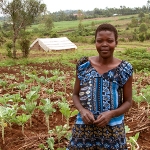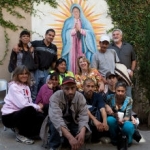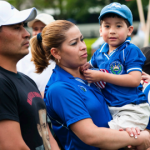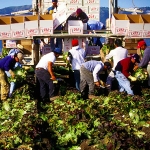Research Projects
UC Speaks Up
 UC Speaks Up is a three-campus (UCLA, UC San Diego, UC Santa Barbara) qualitative research project aimed to assess the perceptions of the campus environment related to sexual violence and explore how institutional and community policies influence students’ lives and experiences.
UC Speaks Up is a three-campus (UCLA, UC San Diego, UC Santa Barbara) qualitative research project aimed to assess the perceptions of the campus environment related to sexual violence and explore how institutional and community policies influence students’ lives and experiences.
Cookstove Project at Berkeley Lab
 For three billion people cooking with inefficient fuel sources can be deadly. To help combat this global health issue, Lawrence Berkeley National Laboratory has developed an efficient cookstove and is distributing it to places like Sudan, Darfur and Ethiopia.
For three billion people cooking with inefficient fuel sources can be deadly. To help combat this global health issue, Lawrence Berkeley National Laboratory has developed an efficient cookstove and is distributing it to places like Sudan, Darfur and Ethiopia.
Shamba Maisha – Innovation for health in Kenya
 This UCSF project is testing an agriculture and finance intervention to improve the health and well-being of families living with HIV in rural Kenya.
This UCSF project is testing an agriculture and finance intervention to improve the health and well-being of families living with HIV in rural Kenya.
Impact of Drug Policy Reform on the HIV Risk Environment among IV Drug Users in Tijuana
 This UC San Diego study, led by Dr. Steffanie Strathdee, evaluates the impact of Mexico's 2009 drug policy reform (narcomenudeo) on drug use and HIV risk behaviors in Tijuana.
This UC San Diego study, led by Dr. Steffanie Strathdee, evaluates the impact of Mexico's 2009 drug policy reform (narcomenudeo) on drug use and HIV risk behaviors in Tijuana.
Study on impact of climate change on snowpack
 April 2017
April 2017
An international team of scientists has found that up to 20 percent loss in the annual maximum amount of water contained in the Western United States' mountain snowpack in the last three decades is due to human influences. "These results add to the evidence of a human influence on climate that will have severe impacts on our water supply," according to Benjamin Santer, a Lawrence Livermore National Laboratory climate scientist and a co-author of the paper.
Women's Empowerment and Global Health
 November 2016
November 2016
Shari Dworkin, Monica Gandhi, Paige Passano, Editors
The UCGHI Center of Expertise (COE) on Women's Health, Gender and Empowerment advances research and education on the health and empowerment of girls and women around the world. In their signature product, Women's Empowerment and Global Health, COE collaborators use multidisciplinary case studies to examine various systems of oppression that impact gender equity and highlight programs that are paving the way for women's empowerment and health.
Creating conditions to support healthy people: State policies that affect the health of undocumented immigrants and their families
 April 2015
April 2015
Michael A. Rodríguez, Maria-Elena Young, Steven P. Wallace
Federal policies around undocumented immigrants are often exclusionary and negatively impact the health and well-being of undocumented immigrants and their families. State policies have increasingly played a role in shaping the social and economic factors that affect the health of undocumented immigrants. State level legislation and policies "are both inclusive—expanding the social inclusion of undocumented immigrants beyond that of federal policy, as well as exclusive—further restricting benefits, rights and resources for undocumented immigrants." This report, conducted by the UCGHI Center of Expertise (COE) on Migration and Health, examines how state policies affect the health of undocumented immigrants and develops a framework for assessing the level of inclusion of state policies.
Improving the health of agricultural workers and their families in California: Current Status and Policy Recommendations
 February 2015
February 2015
Marc B. Schenker, Stephen A. McCurdy, Heather E. Riden, Don Villarejo
UCGHI Center of Expertise on Migration and Health
Many factors affect the health of farm workers – including economic issues, environmental conditions, personal behaviors, and social and cultural dynamics. This paper, a product of the UCGHI Center of Expertise (COE) on Migration and Health, presents the current literature on the health of farm workers and their families and paints a picture of the social and economic context in which policy changes can be made to improve health outcomes.
